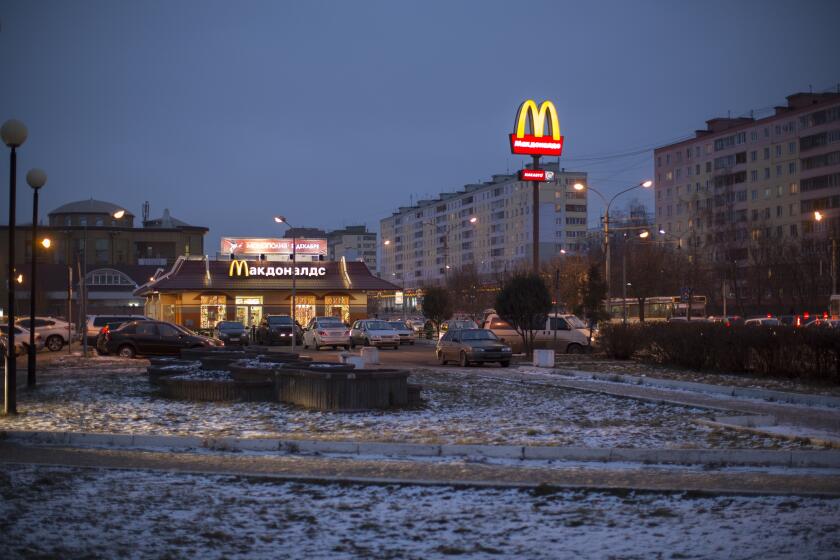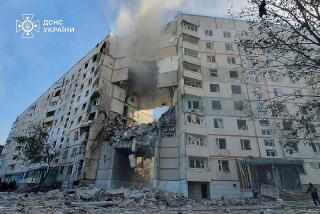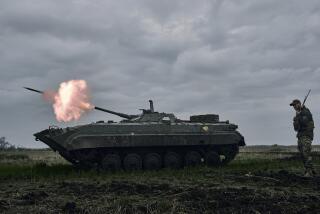Ending weeks of standoff, Russia takes Mariupol but sees setbacks elsewhere
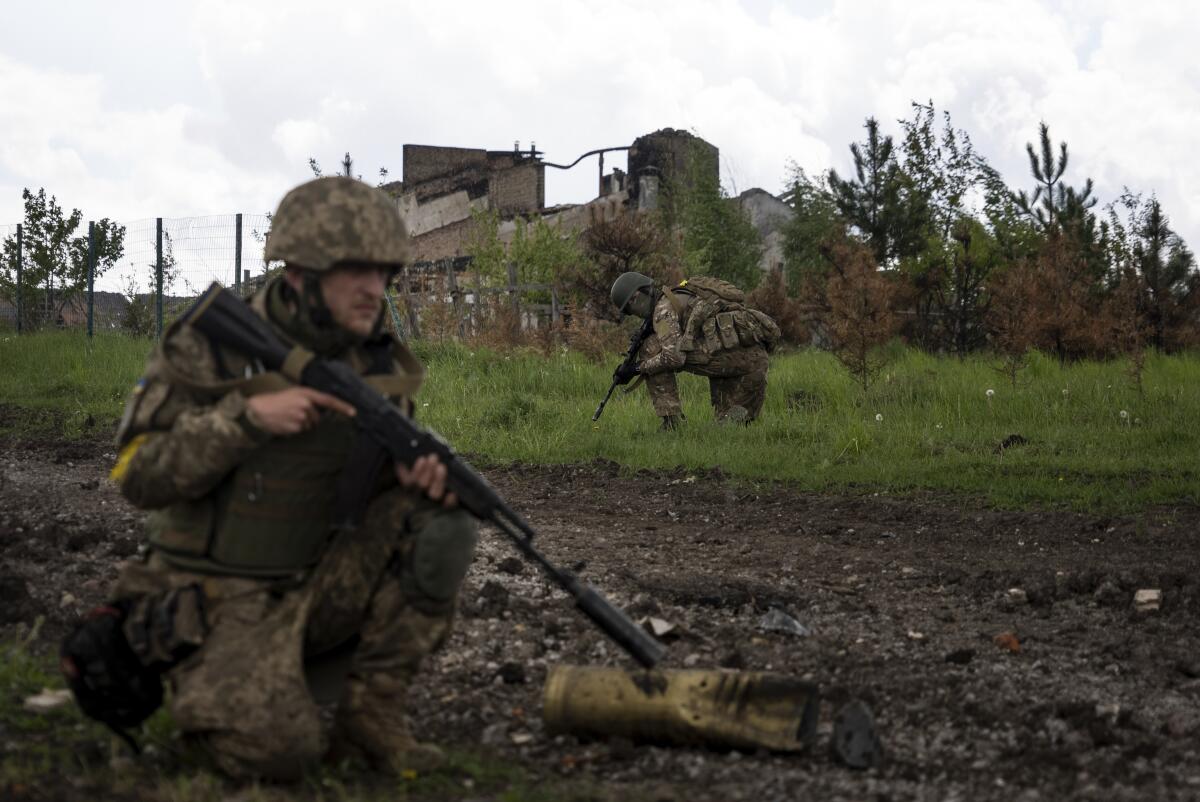
- Share via
LVIV, Ukraine — After weeks of Russian bombardment, a band of Ukrainian soldiers fighting from a battered Mariupol steel plant ended combat operations on Monday, giving Moscow full control of a strategic port city that has been turned into a ruin of empty buildings and mass graves.
Ukrainian officials said that 264 fighters were evacuated to Russian-held territory to the east, including 53 seriously wounded fighters who were taken to a hospital.
The deputy defense minister, Hanna Maliar, said that all would eventually be returned home through a prisoner exchange with the Russians.
In his nightly address, Ukrainian President Volodymyr Zelensky saluted the soldiers and said there was no choice but to save lives.
“Ukraine needs Ukrainian heroes to be alive, That is our principle,” he said. “The work continues to bring the guys home, and it requires delicacy and time.”
The city became a symbol of defiance in a siege that turned Ukrainian soldiers into heroes, tested Russian firepower and underscored President Vladimir Putin’s resolve to win a major coastal city. Seizing Mariupol would allow him a path from Russian-controlled territory in the east to the Black Sea.
The apparent Russian victory in Mariupol was a rare success for a country facing mounting setbacks both diplomatically and on the battlefield. After 12 weeks of war, Russia has yet to meet any of its major objectives.
It is also faced with the prospect of an expanded North Atlantic Treaty Organization — one of the very things that Putin has said he aimed to prevent by invading Ukraine.
Responding to announcements by both Finland and Sweden over the weekend that they would apply to join NATO, Russia’s deputy foreign minister, Sergei Ryabkov, warned both countries that they were committing a “grave mistake.”
He said the two Nordic nations were embarking on a misguided path “with far-reaching consequences,” according to Russian news reports.
“The fact that the security of Sweden and Finland will not be strengthened as a result of this decision is very clear to us,” the Interfax news agency quoted Ryabkov as saying. “They should have no illusions that we will simply put up with it.”
Entry into NATO by Finland and Sweden — long officially nonaligned nations that have avoided allying with major powers — would significantly alter the transatlantic security architecture in existence since the end of World War II.
In another symbol of just how isolated Russia has become, McDonald’s announced Monday that it had begun the process of selling its chain of 850 restaurants in Russia, calling the company’s presence “inconsistent with McDonald’s values.”
More than three decades ago in a sign of easing Cold War tensions, McDonald’s was the first American fast-food restaurant to open in the Soviet Union — just two months after the fall of the Berlin Wall.
Ukraine has used postage stamps to boost wartime morale. One image stood out — and sold out. ‘Just felt what we all felt,’ young designer says.
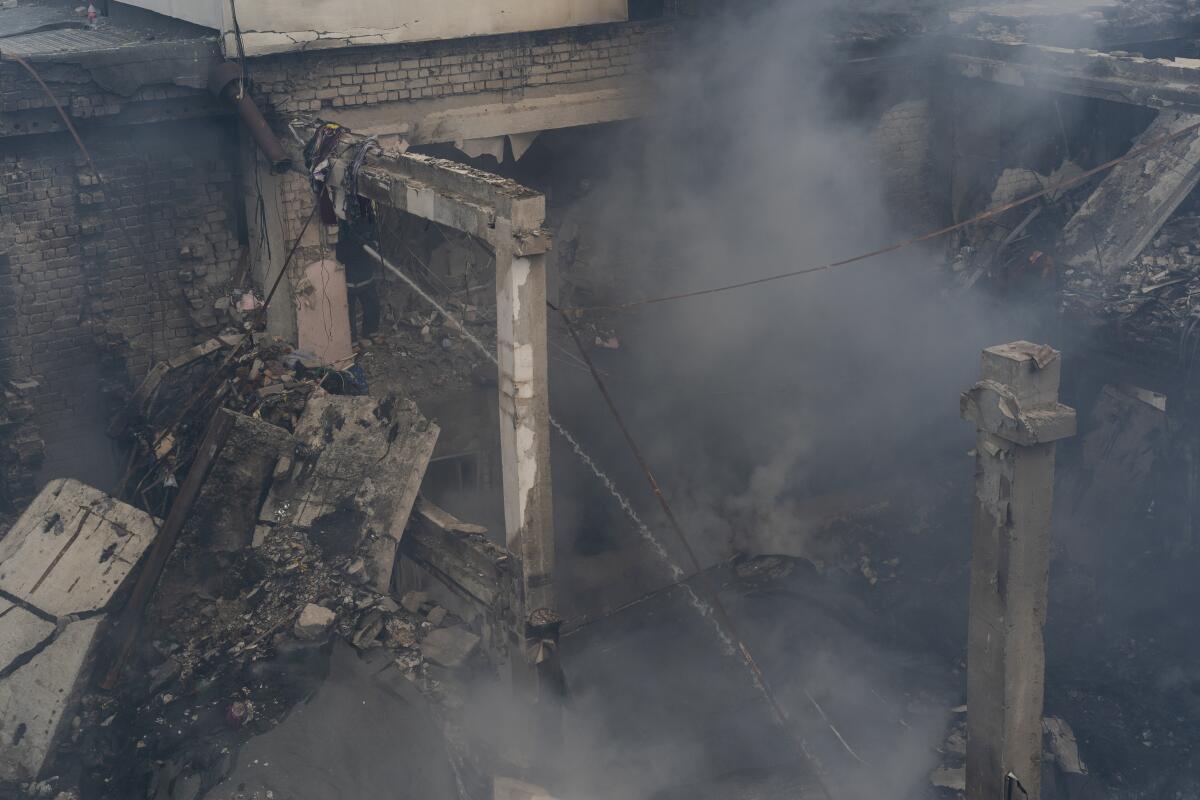
Inside Ukraine, the Russian military has had little to celebrate. In its most recent setback, Russian forces have been driven back from Kharkiv, the second-most populous city, which lies about 25 miles from the border and has been under heavy assault since the beginning of the war.
In a video message, Zelensky thanked troops who had pushed Russian forces toward the border.
Russians were reported to be pressing attacks Monday in the Donbas region, Ukraine’s eastern industrial heartland.
Russian aircraft “damaged civilian and military infrastructure in the eastern war zone and industrial facilities deep in Ukraine,” the Ukrainian military said Monday. Russia is “preparing offensive operations” with forces based in the Russian-controlled eastern Ukrainian city of Izyum, a key strategic point in the Donbas battle.
Zelensky said that Ukraine was bracing for expanded Russian assaults in the region.
“We are preparing for new attempts by Russia to attack in Donbas, to somehow intensify its movement in the south of Ukraine,” he said. “The occupiers still do not want to admit that they are in a dead end and their so-called special operation has already gone bankrupt.”
Moscow redirected its efforts last month to the Donbas after a failed attempt to capture Kyiv, the capital, in another humiliation for Putin.
McDonald’s says it’s started the process of selling its Russian business, which includes 850 restaurants, as a result of the war in Ukraine.
But more than any other battle in the war, it was the fight for Mariupol that captured the world’s attention and came to embody the cruelty of the war: thousands dead, tens of thousands displaced, roads battered, houses destroyed, failed cease-fires and countless wounded.
It has been more than two months since as many as 2,000 Ukrainian fighters accompanied by civilians took refuge in the vast Azovstal steel plant and its sprawling network of underground passages. Russian forces surrounded the facility, cutting off escape routes, and bombarded it mercilessly.
The plight of the soldiers — navigating what was once one of Europe’s largest steel mills — played out in daily tick-tock drama, riveting the nation as the war spread to other cities and towns. Running low on food and supplies, the Ukrainian fighters, who kept in contact with families and sent videos to the outside world, appeared as if adrift in a factory that had also been conquered by the Nazis in the 1940s.
Even as Russia declared that it had taken control of the city, the Ukrainian fighters refused to leave.
Most civilians who were taking shelter in the plant were believed to have been evacuated earlier this month under a deal worked out by the United Nations and the International Committee of the Red Cross.
Ukraine’s military said it was working to evacuate remaining fighters who stayed behind.
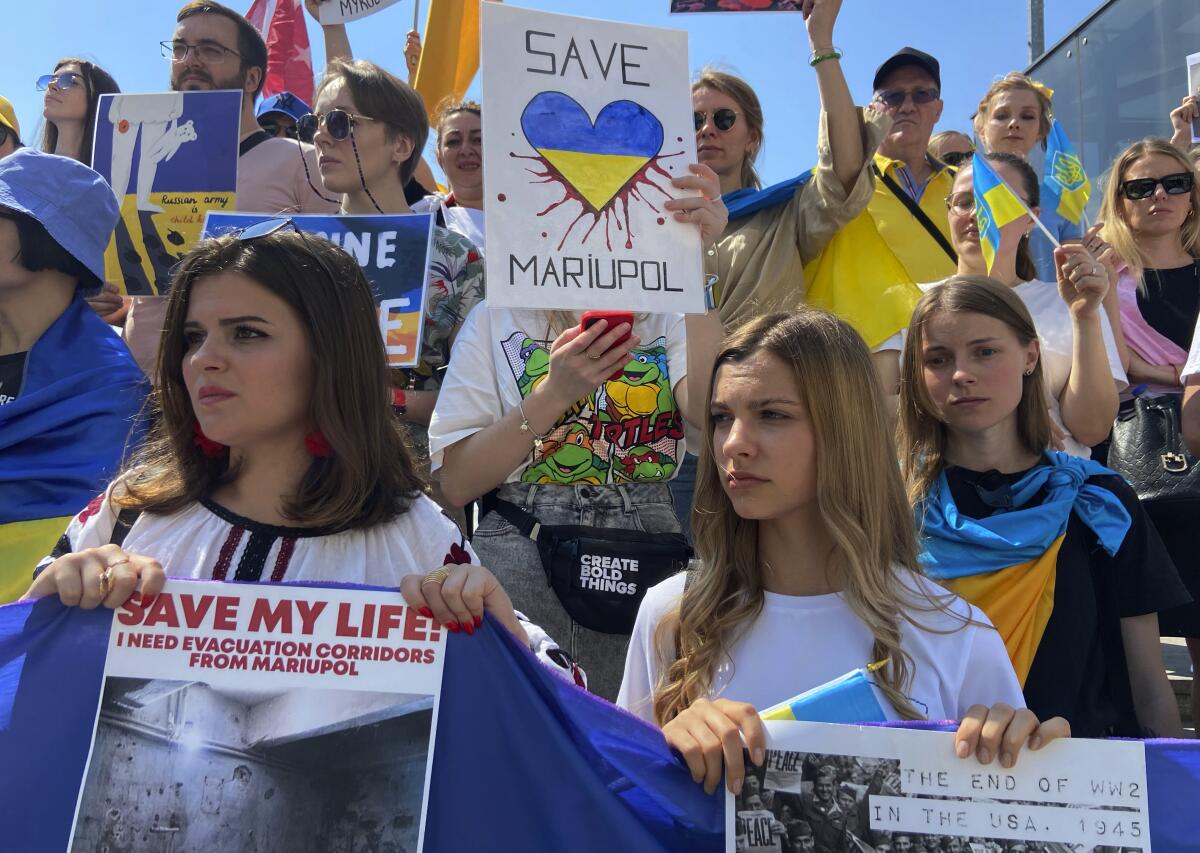
On the diplomatic front, Zelensky has welcomed the moves by Finland and Sweden to join NATO.
Indeed, the goal of membership in the alliance is enshrined in Ukraine’s own constitution — a major source of anger and alarm in Moscow — though Ukrainian officials have indicated that it could be subject to negotiation as part of a settlement to end the war.
In addition to Finland and Sweden, Georgia — like Ukraine, a former Soviet republic — has also expressed a desire to join NATO despite Moscow’s vociferous objections.
NATO and U.S. officials have voiced confidence that Finland and Sweden would be accepted into the alliance despite reservations from Turkey, a NATO member, which objects to the presence in the two Nordic nations of Kurdish groups critical of Turkey’s treatment of its Kurdish minority.
In other developments Monday, a senior U.S. Defense official said that Russian forces fired a “half dozen” missiles toward Lviv in western Ukraine, hitting a military training complex near there but with only “minor” damage to a few buildings and no known casualties.
The missiles may have been fired from a submarine in the Black Sea, the official said. Lviv, a short distance from Ukraine’s border with Poland, has been spared most of the heaviest attacks but is located strategically along supply routes taking weapons from the U.S. and other NATO countries to the front lines.
The official also said that 74 of the 90 Howitzer artillery pieces supplied by the U.S. are now “in the fight.” He quoted Ukrainian military officials saying that the howitzers have made a “very effective difference” in the Donbas campaign.
“The systems are helping them regain some momentum and take back territory,” the official said.
Times staff writers Tracy Wilkinson in Washington and Emily Baumgaertner in Los Angeles contributed to this report.
More to Read
Sign up for Essential California
The most important California stories and recommendations in your inbox every morning.
You may occasionally receive promotional content from the Los Angeles Times.

